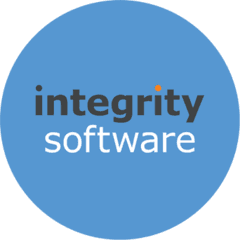Blog
How NOT to use your construction accounting system
Accounting software can save you hours of work each week. It can automate pesky admin tasks, help you chase late payments, and gives you complete visibility over every business expense. In short, your new accounting system has huge potential.
Even after a thorough implementation process, there's no guarantee you'll fulfil the software's potential. There's plenty of variation in how your accounting software can be used.
In this article, we explore software 'worst practices'. If you don't want to receive a return on investment, or if you enjoy annoying staff, here's how you should use your new accounting system...
Fail to convert all employees
The training process was supposed to ensure that all users were comfortable using the new system. However, it's not only the users that need to be won over – it's also the CEO. If you work in a larger construction company in particular, you may be reluctant to bother the boss over such trivial matters. However, if you don't secure their support, they may change the system without warning or fail to back its adoption in the long term. People at all levels of the organisation should support the system, else you could soon be looking for new software again.
Be inconsistent
The data you get out of your accounting system isn't going to be any higher quality than the data you put it in. The 'Garbage In, Garbage Out' principle still holds true. To improve the quality of data, inputs should be standardised and as complete as possible. Check that all staff know when and where to use abbreviations and encourage users to add as much detail as possible to each record. The file structure should be intuitive and easy to navigate, otherwise you may end up with duplicate or missing data.
Set up a single security level
Your software should allow for different user 'levels', either through user categories (such as administrator, manager, user etc.), or an access score. Folders should be set-up with required access levels to improve your security. Only give employees access to the data they need. You wouldn't give all new hires keys to the company safe – so why would you grant high level security access to new software users? Data breaches from your own employees are surprisingly common – they're rarely malicious, but you can still take steps to avoid them. Create a thorough and varied set of access levels to reduce the risk of data breaches.
Never create reports
Your accounting software shouldn't just be used as a bank of data to tell HMRC you're paying your fair share of tax. Your data can and should be turned into useful information. Reports quickly translate your data into something visually appealing – and practical. These reports show you where budgets are being stretched, which projects are performing well, and how your company is faring relative to forecasts. There's little point in creating and storing data unless you analyse it.
Stick to the version number you started with
Software updates are an annoyance to all of us, at home or at work. Restarting a PC is a chore, particularly when you have dozens of programs open and are in the middle of a lengthy task. However, delaying software updates (or failing to install them at all) not only leaves you without features that reflect new legislation – you also won't receive fixes to security vulnerabilities.
If you'd like to see your new accounting system crash and burn, follow the steps above. If your company would prefer the project to be a success, do the opposite.
For more software tips, and news and analysis on the construction industry, take a look through our blog archives.
© Integrity Software Systems Ltd 2024. Part of the JDM Technology Group
Privacy PolicyCookie PolicyWebsite Terms & ConditionsIntegrity Terms and Conditions
